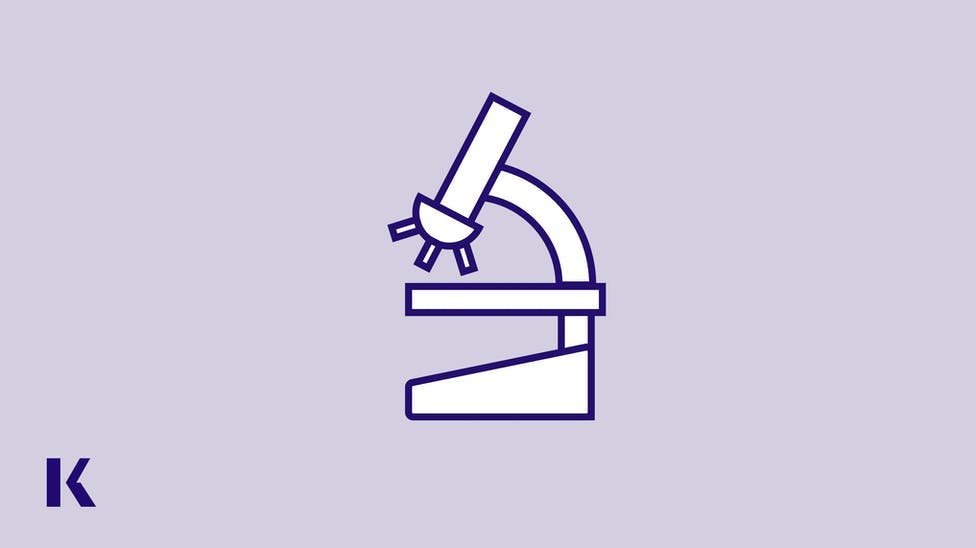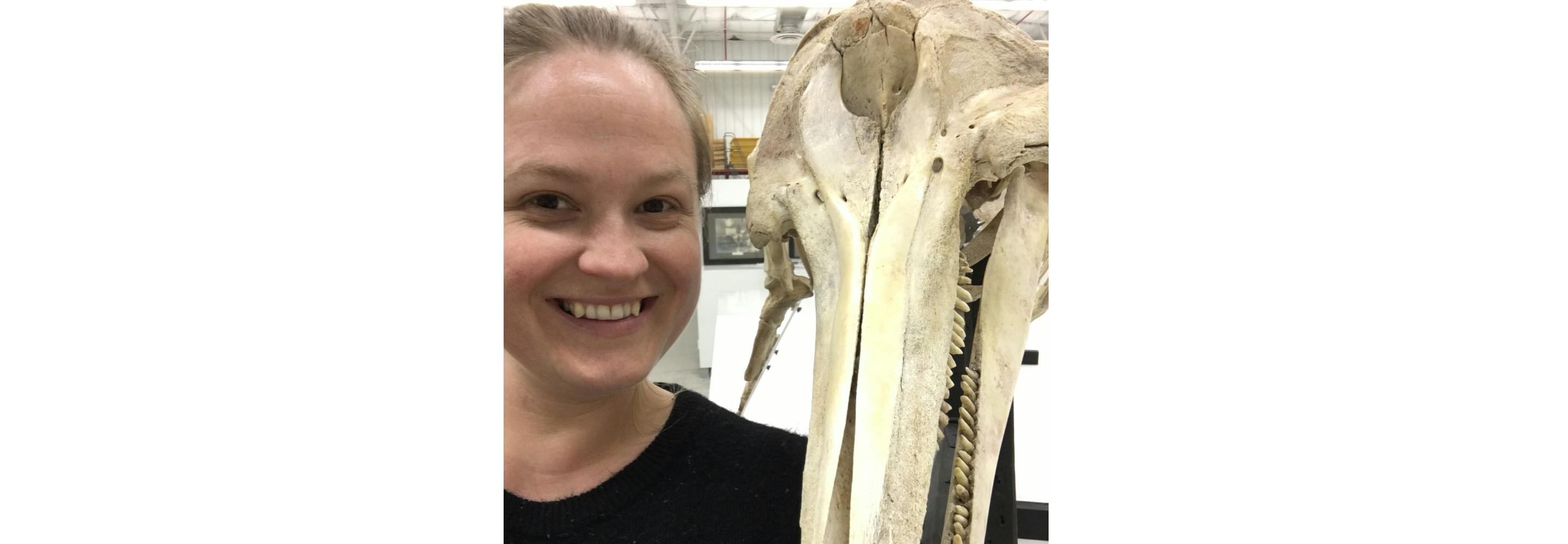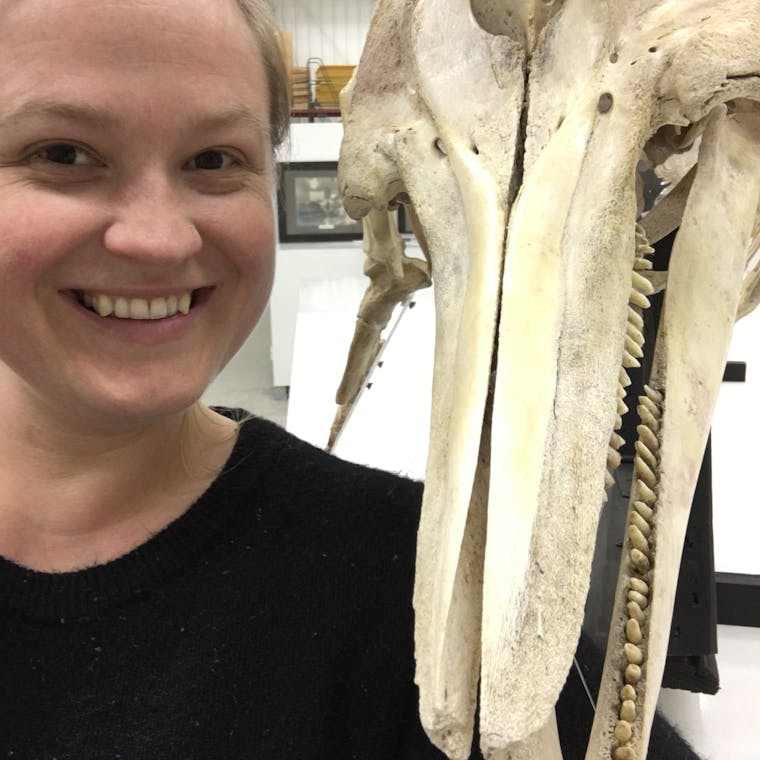Meet the Kaplan Experts: Kerri Smith, PhD, MCAT Instructor
by Kerri Smith, PhD, MCAT Instructor | September 10, 2021

The Kaplan Team is often cited as why schools stay with Kaplan, year after year. At Kaplan, there’s an expert at the heart of everything we do, whether it’s leading a class or developing innovative tools to help your students achieve their career goals. With our “Meet the Kaplan Experts” blog series, we introduce you to Kaplan’s extensive network of faculty, medical, and educational experts and delve into their diverse areas of expertise so that you can learn even more about your Kaplan team. This week, we're pleased to introduce you to Kerri Smith, PhD, MCAT Instructor.

Tell Us About Yourself
I grew up in Virginia and spent my childhood exploring the woods around my home. I collected bugs, salamanders, bird nests, bones, and anything else my mother would tolerate. For my 10th birthday I received a microscope and chemistry set, and my feet were firmly set on the path of science.
I have a B.S. and M.S. in marine biology and a PhD in environmental science and engineering. My research focuses on beaked whales, which are challenging to study because they live far offshore and spend most of their time under water. So, I spend a lot of time in museums looking at their bones―I’ve had the privilege to work in the Smithsonian, Natural History Museum London, and the French National Museum of Natural History!
When I’m not doing research or teaching with Kaplan, I enjoy hiking, tackling puzzles, and playing video games. And I have two very cute miniature schnauzers that make frequent appearances during my classes.
Test Scores
I’m a standardized test nerd and have scored above a 90th percentile on the MCAT, OAT, DAT, PCAT, GRE, GMAT, LSAT, SAT, ACT.
What are your particular areas of expertise?
I’m an expert on breaking down CARS passages, developing effective study plans, deconstructing complex science topics into their base components, and 2000 piece puzzles.
What is your most unique experience, hobby, or personal quality?
I really love the research I do, so at any time I may have whale bones in my bag, on my desk, or even smell like whale bones that I’ve been handling. I like to think it’s endearing, but not everyone seems to agree.
Tell Us About Your Experience in Medical Education
How long have you worked for Kaplan and what drew you to your current role?
I began working for Kaplan when I started graduate school, about nine years ago. I was teaching human anatomy and physiology at the university, and several of my students were interested in applying to medical school. In order to better understand and help them reach that goal, I began researching the MCAT and medical school admissions. A friend was already teaching MCAT for Kaplan and suggested I would enjoy teaching students how to master the test―I took the MCAT and scored a 96th percentile, and here I am!
This really opened a door for me; before joining Kaplan, I didn’t know about opportunities to help students overcome standardized tests. Standardized tests can be significant hurdles, both content and stress-wise, and it’s very satisfying to see a student face and conquer those hurdles. Once I got my feet under me with teaching MCAT, I decided to branch out and teach the PCAT (pharmacy), DAT (dental), and OAT (optometry) tests.
Kaplan requires all teachers to score above a 90th percentile to teach a test so I began the arduous task of studying for each, but I quickly found that the test strategies that worked so well on the MCAT worked on these as well. It was all downhill from there―now I could see that standardized tests were just puzzles, so I needed to master them all!
Now you might find me teaching PCAT in the morning, GMAT that afternoon, and MCAT the next day. It might seem strange to jump around between so many tests, but at their core they all cover the same thing―logic and critical reasoning skills.
Do you have a particularly notable student success story to share?
One of my favorite success stories comes from working with a DAT student. The student had years of experience working in dental offices and was ready to go to dental school, but the DAT was giving them some trouble. They had tested several times and fell just short of a score that would gain them admission. They had exhausted their testing attempts, but they applied to a school that really wanted them―they just needed a slightly higher score. So, the school appealed to the test administrators for the student to be given one more testing opportunity. I began working one-on-one with the student twice a week, and when it came time for their test they made the score they needed for admission! They went to dental school and now work in a dental practice. This happened within my first couple of years working for Kaplan, and it really solidified for me what a difference Kaplan can make in students’ lives.
Which current or future education/test prep innovations do you wish you’d had access to when you were in university?
When I was prepping for the GRE for graduate school, my only prep choices were books or an in-person class. I was taking a full course load and working, so fitting a class into my schedule was really daunting and I ultimately just prepped with books. The experience was not fun. But now, Kaplan students can choose from live classes, recorded classes, online classes (yay for sweatpants during class!), and one-on-one tutoring. I’m kind of majorly jealous―recorded sessions would have been perfect for my schedule.
Share your insights into the Medical Education Industry
What is the most important aspect of a partnership between Kaplan and the pre-med students we serve?
The Kaplan-student partnership is so great because Kaplan is all about breaking down barriers for students.
The barrier could be content knowledge―Kaplan provides review books that cover every single topic on the test. But even better than books, we have live and recorded classes and workshops that break down and deep dive into every topic.
The barrier might be time to prep―we have live classes every day of the week, morning, afternoon, and evening, AND recorded classes if your schedule changes week to week.
The barrier might be financial―we have incredible financial assistance programs to help every single student find their right prep option; finances should not keep students from being successful.
One of the things I really love about working for Kaplan is that we have a whole team of people working to find ways to break down barriers for every single student.
Advice
Is there a quote or saying that you live by?
I live by, “First we get it right, then we get it fast.”
It’s my mantra in class, but also at work, and any time I tackle something new. It can be super tempting to want to be good and fast at something right away. But if we try to get good and fast at something at the same time, we just end up frustrated. Instead, I always remind myself to slow down, learn how to tackle the thing in question, learn where mistakes can happen, and how to troubleshoot problems. Then, as my skills grow, I don’t need to think about each individual step and the process develops into a flow and I get faster. This is true for everything from working out to pipetting to answering test questions!
And finally, is there anything else that you would like to share with our readers?
Know that you aren’t tackling your test prep alone―there’s a whole team of people at Kaplan who want you to succeed! So, reach out with questions, ask for help, and let us help break down barriers for you as you move into the next phase of your education. Believe me, we’re here because we love doing this, and we want to see you excel!

I grew up in Virginia and spent my childhood exploring the woods around my home. I collected bugs, salamanders, bird nests, bones, and anything else my mother would tolerate. For my 10th birthday I received a microscope and chemistry set, and my feet were firmly set on the path of science. I have a B.S. and M.S. in marine biology and a PhD in environmental science and engineering. My research focuses on beaked whales, which are challenging to study because they live far offshore and spend most of their time under water. So, I spend a lot of time in museums looking at their bones―I’ve had the privilege to work in the Smithsonian, Natural History Museum London, and the French National Museum of Natural History! When I’m not doing research or teaching with Kaplan, I enjoy hiking, tackling puzzles, and playing video games. And I have two very cute miniature schnauzers that make frequent appearances during my classes.
